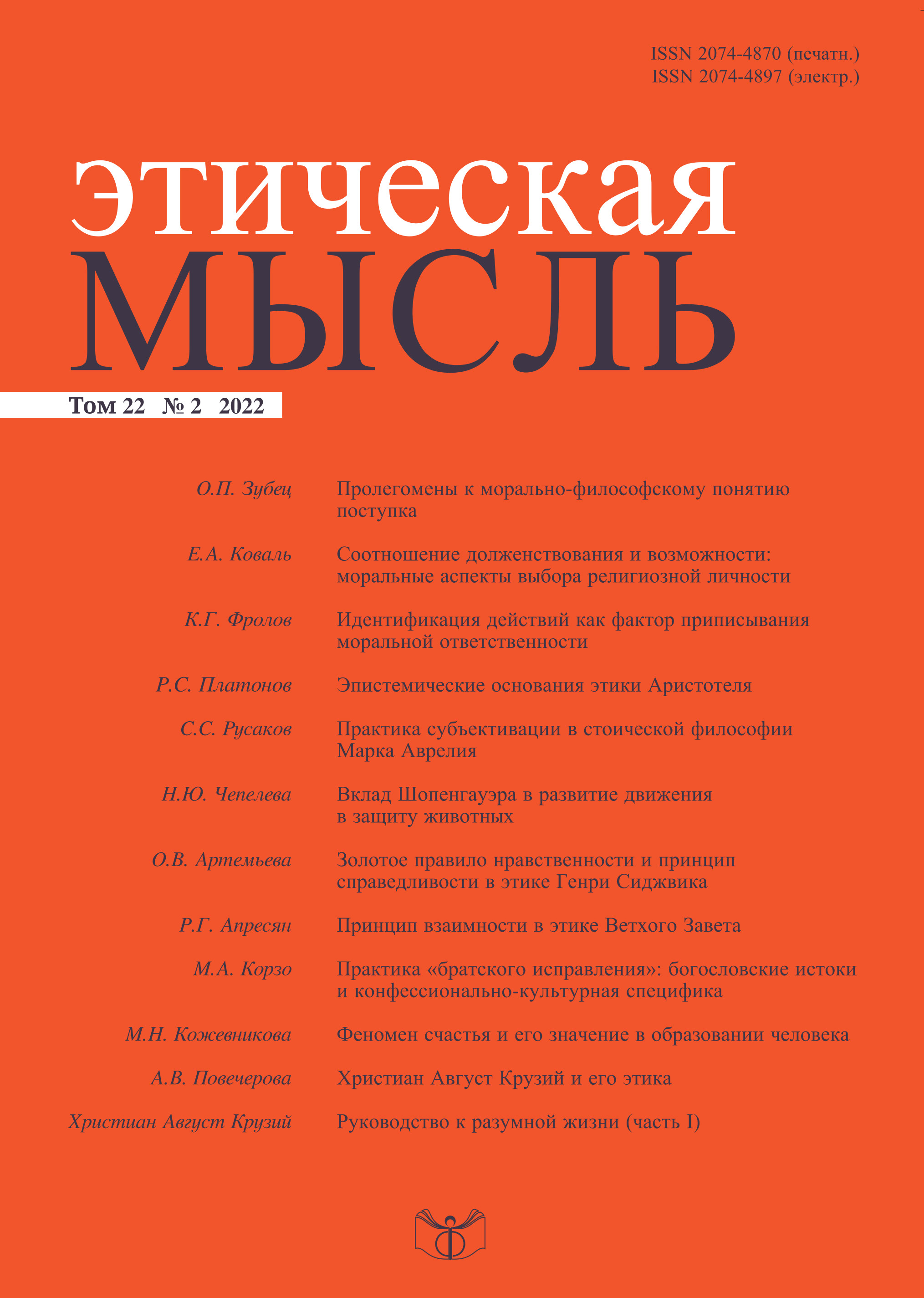The Principle of Reciprocity in the Old Testament Ethics
DOI:
https://doi.org/10.21146/2074-4870-2022-22-2-100-115Keywords:
morality, reciprocity, retrospective and prospective reciprocity, the Old Testament, Lex Talionis, gratitude, the Golden Rule, genealogy of moralsAbstract
The principle of reciprocity is fundamental to the Old Testament moral world and is traced in all its main manifestations. In the Old Testament books, they are comprehensively presented in descriptions of both, the relationship between God and the humans, and human relations. The article considers the principle of reciprocity on the basis of its main forms – Lex Talionis, gratitude and the Golden Rule, in its two types – retrospective reciprocity of retaliatory actions (positive or negative) and prospective reciprocity of initiative actions that implement an agent’s benevolence towards others. The study has been grounded on a normative-ethical analysis of imperative and narrative texts of the Old Testament books. Some narrative plots (Gen. 21: 22–24, 27; 26: 26–31; Nav. 2: 1–24) are especially significant for the study of the Golden Rule, which is present in the Old Testament mostly rudimentary: the analysis of the corresponding narratives allows us to reconstruct the process of crystallization of thinking in the spirit of the Golden Rule at a proto-normative stage. The Lex Talionis and the Golden Rule normative dynamics shows that the principle of reciprocity, which initially emerged in the practice of trade exchanges and became a means to ensure the coherence of social relations, was gradually realized as a universal principle of social life and as such turned out to be fundamental for morality.









